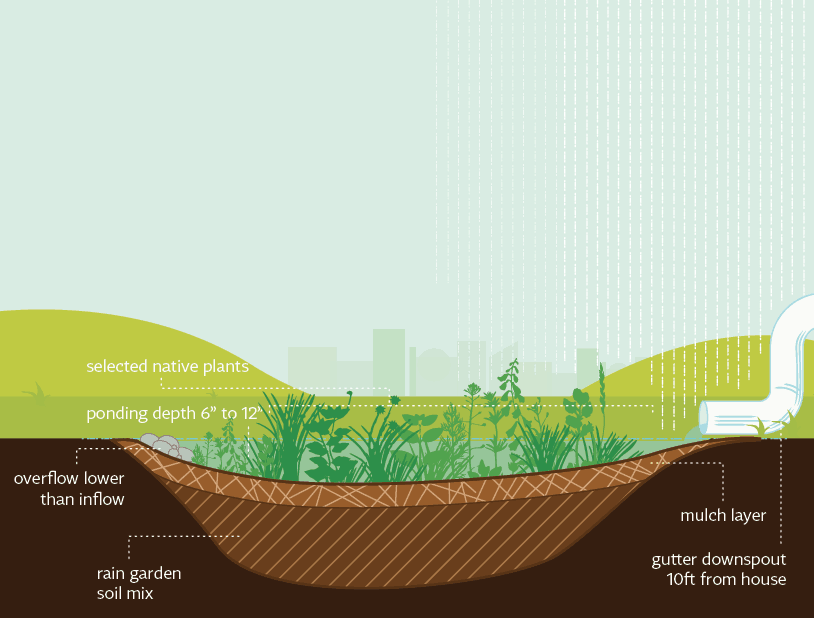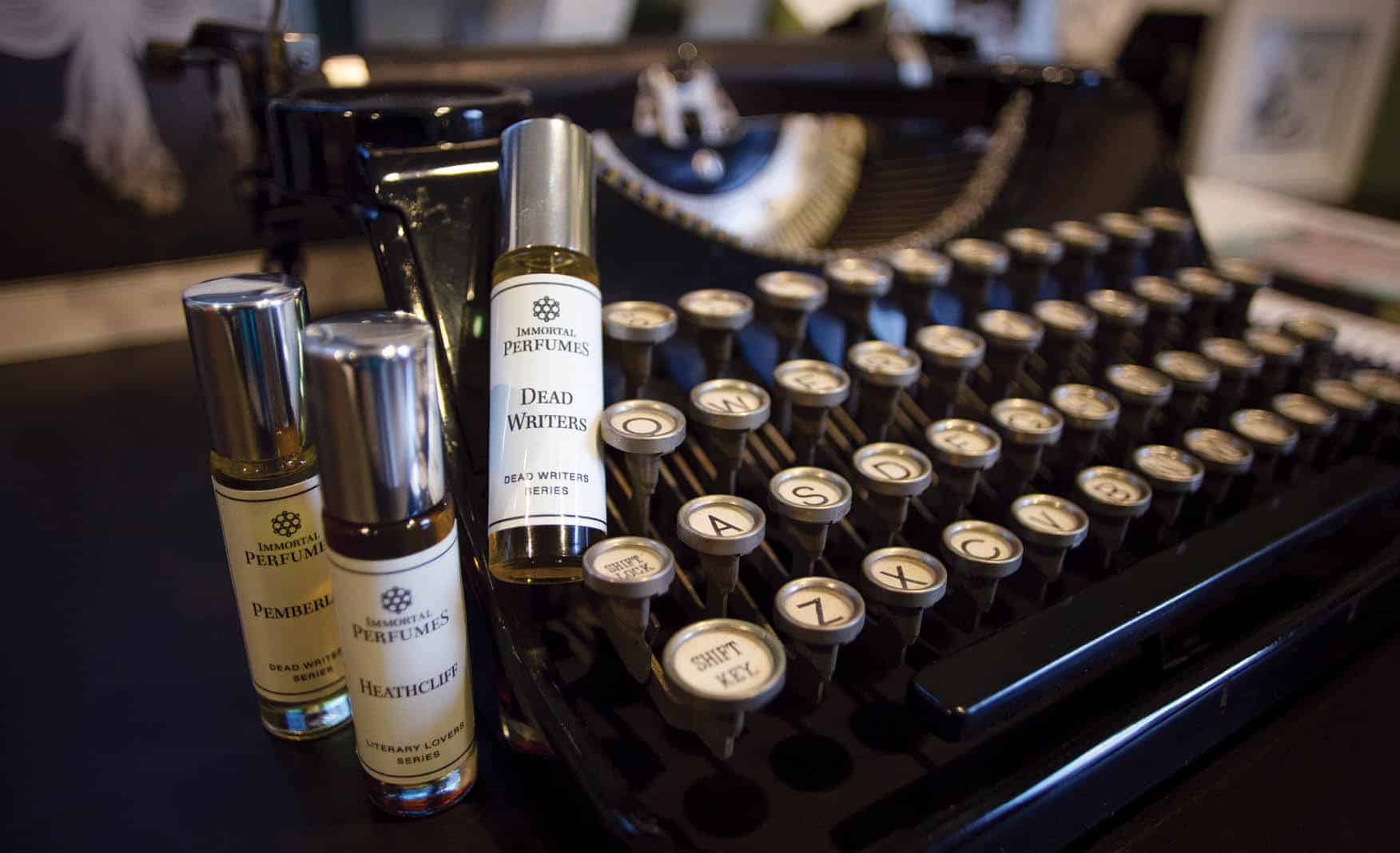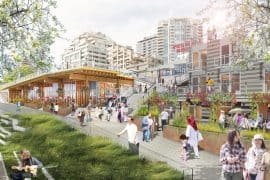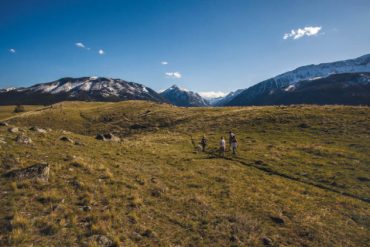TOTE Rain Gardens: Protecting Washington waterways
written by Dana E. Neuts | illustration by Michael Williamson
A third of all polluted waters in Washington are fouled by stormwater runoff, which occurs when rain falls on streets, rooftops and other hard surfaces. Along the way the runoff picks up oil, grease, vehicle coolant, fertilizer and pesticides and delivers them, unfiltered, to our waterways. This pollution poses a threat to wildlife and natural habitats, and according to the Washington Department of Ecology, stormwater is the state’s main cause of poor water quality.
One solution to polluted runoff is creating rain gardens that filter the runoff before it goes downstream. Organizations such as Stewardship Partners, Washington State University, The Nature Conservancy, Washington State Department of Ecology and Washington Environmental Council are working together to educate businesses and residents about the value of rain gardens throughout Puget Sound through the 12,000 Rain Gardens project. Starting in 2011, the goal was to create 12,000 rain gardens by the end of 2016. To date, 3,492 have been created.
Totem Ocean Trailer Express (TOTE) of Tacoma has created rain gardens to retain its industrial stormwater permit, reduce pollutants such as copper and zinc and improve the aesthetics of the TOTE terminal. It also serves as an example to other businesses how effective rain gardens can be. The TOTE rain gardens were the first of their kind in the South Sound.
“Our goal installing these was to reduce contaminants. We did not think that we would totally eliminate them, but that’s what’s happened,” TOTE terminal specialist Lisa Kavanaugh said.
Aaron Clark, an environmental scientist and director of strategic partnerships for Stewardship Partners, said rain gardens can be scaled to meet the needs of homeowners, business owners and organizations.
“Rain gardens are often thought of as just a homeowner tool, but the exact same concept of soils and plants capturing and filtering the rain (just like a forest does) transcends just residential to industrial, commercial, but also rural landscapes where concepts like riparian buffers filter agricultural runoff and simultaneously protect farms from flooding,” Clark said. “I often say that every rain garden dreams of becoming an evergreen forest when it grows up.”







